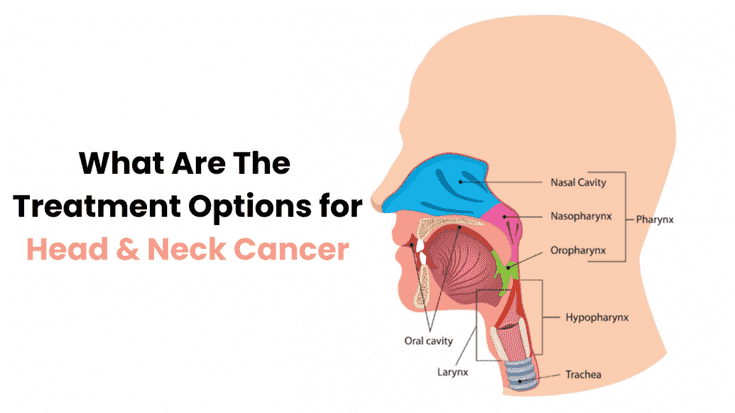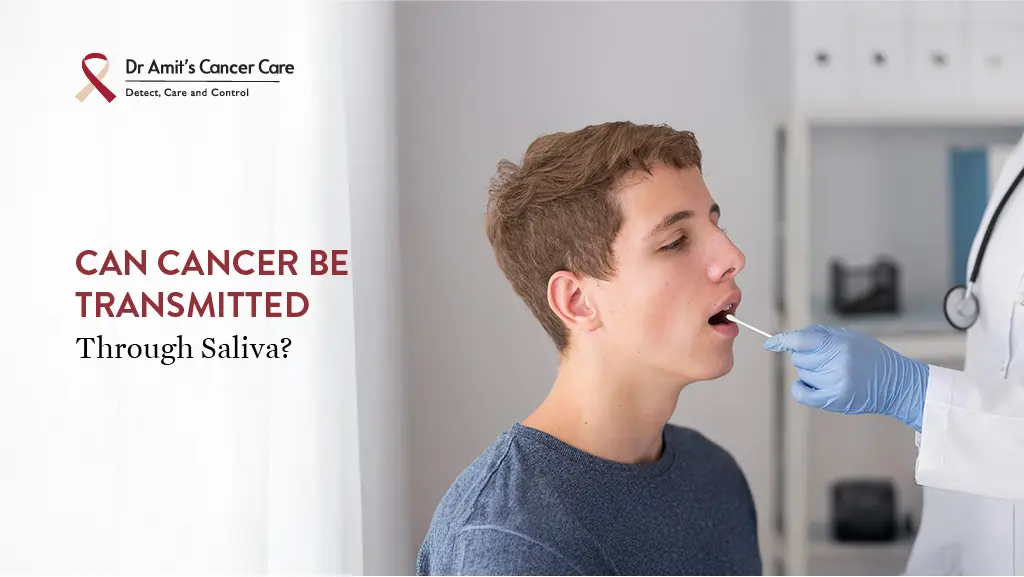Overview
Head and neck cancers include many malignancies that affect the oral cavity and neck area.
Treatment for head and neck cancer varies depending on the kind, location, and size of the tumors in your neck. Head and neck malignancies often need surgery, radiation therapy, and chemotherapy as treatment options. Cancer treatment may use treatments in conjunction with one another.
Head and neck malignancies may leave patients with a wide range of side effects, including hearing loss, difficulty swallowing, and dental concerns. They may also have thyroid or respiratory problems.
Survivors may need to engage with rehabilitation professionals to deal with these challenges.
Treatment Options
The following are some of the treatment options for head and neck cancers:
Cancer Surgery (Onco-Surgery)
During surgery, the objective is to remove the malignant tumour and some healthy tissue from the surrounding area. The following are examples of head and neck cancer surgeries:
- Laser technology: This might be utilised to treat a tumour in its early stages, mainly if it is detected in the larynx, buccal mucosa & tongue.
- Tumour Excision: This procedure removes the malignant tumour and some healthy tissue around it, termed a margin.
- Lymph node dissection or neck dissection: The Spread of cancer in neck nodes is seen in 25-30% of cases hence it is addressed with primary surgery.
- Reconstructive (plastic) surgery: Reconstructive or plastic surgery may be used to restore lost tissue after cancer surgery that needs extensive tissue removal, such as the jaw, skin, pharynx, or tongue. This procedure aids in the restoration of a person’s appearance and the function of the affected area.
A prosthodontist, for example, may be able to create a prosthetic dental or facial portion to aid in the restoration of swallowing and speaking abilities.
In addition, a speech therapist may be required to assist the patient in relearning how to swallow and communicate using new methods or specialised equipment.
Some patients may need many operations depending on the location, stage, and kind of cancer.
It is not always feasible to eradicate cancer with one treatment option, and different therapies are used simultaneously.
Radiation treatment, chemotherapy, or both may be used after surgery to eliminate cancer cells not removed during surgery.
– Radiation Therapy
The use of high-energy X-rays or other particles to eliminate cancer cells is known as radiation therapy.
A radiation therapy regimen, often known as a schedule, comprises a defined number of treatments administered over time.
Radiation therapy may be used to treat head and neck malignancies in various ways, including to help cure the illness or reduce the symptoms of the disease and its treatment.
It may be used alone or in conjunction with or in succession with other therapies, including surgery or chemotherapy. For 4-6 weeks, radiation is usually administered once daily (5 days a week).
External-beam radiation treatment, in which radiation is delivered from a machine outside the body, is the most prevalent radiation therapy.
Intensity-modulated external-beam radiation treatment is a form of external-beam radiation therapy (IMRT).
Advanced technology is used in IMRT to aim radiation beams at the tumour precisely. This reduces the amount of damage done to neighbouring healthy cells, resulting in fewer adverse effects.
Internal radiation treatment, also known as brachytherapy, is a kind of radiation therapy delivered via implants.
As a result, before starting radiation therapy for head and neck cancer, patients should be checked by a dentist familiar with the oral complications associated with cancer and its treatment.
This expert may work with the patient’s regular dentist to organise their dental treatment. Because radiation treatment may induce tooth decay, extracting any damaged teeth in danger may be necessary.
Tooth decay may often be avoided by seeking care from a dentist before starting cancer therapy.
– Chemotherapy
Chemotherapy is a treatment that employs anti-cancer medications administered intravenously to destroy cancer cells in the bloodstream.
Following surgery, chemotherapy may be used to reduce the risk of cancer returning to organs other than the primary site.
A chemotherapy regimen, often known as a schedule, consists of a defined number of cycles administered over a specific time. A patient may get a single medicine at a time or a mixture of drugs simultaneously.
– Follow-up Care
Following head and neck cancer therapy, regular follow-up care is critical to ensure that the disease has not returned or that a second primary (new) malignancy has not been established.
As a result, the patient will need to see their doctor for the following five years. During the first two years, the patient should see their doctor every three months to get an update on their therapy & treatment and to have further tests done.
Depending on the malignancy, medical examinations may involve examining the stoma if one has been developed and the mouth, neck, and throat.
Regular dental examinations may also be required. The patient must then see their doctor every six months for three years.
A comprehensive physical exam, blood tests, x-rays, computed tomography (CT), positron emission tomography (PET), or magnetic resonance imaging (MRI) scans may be performed from time to time by the doctor. In addition, the thyroid and pituitary gland function, mainly if the head or neck has been treated with radiation.
The doctors also advise patients to quit smoking. According to research, for example, continued smoking by a patient with head and neck cancer has been proven to diminish treatment efficacy and raise the risk of a secondary malignancy.
Be a result, you’re referred to as a cancer survivor if you’ve finished 5 years of effective therapy. Furthermore, frequent follow-up with a doctor is required to prevent cancer recurrence.
If you need advice on head and neck cancer or are searching for a good cancer specialist, you can consult Dr Amit Chakraborty, With the latest medical equipment, Dr. Amit Chakraborty offers comprehensive treatment for head and neck cancer. One of the most experienced cancer surgeons in Mumbai.
Conclusion
Consider clinical trials before deciding on a treatment approach. A clinical trial is a study that examines a novel therapeutic method. Doctors want to know whether the new medicine is safe, effective, and better.
Clinical trials might test a new medicine, a new therapy combination, or new dosages of existing drugs or therapies. All cancer patients should seek clinical trials for therapy and care. Your doctor can help you weigh all your alternatives.






